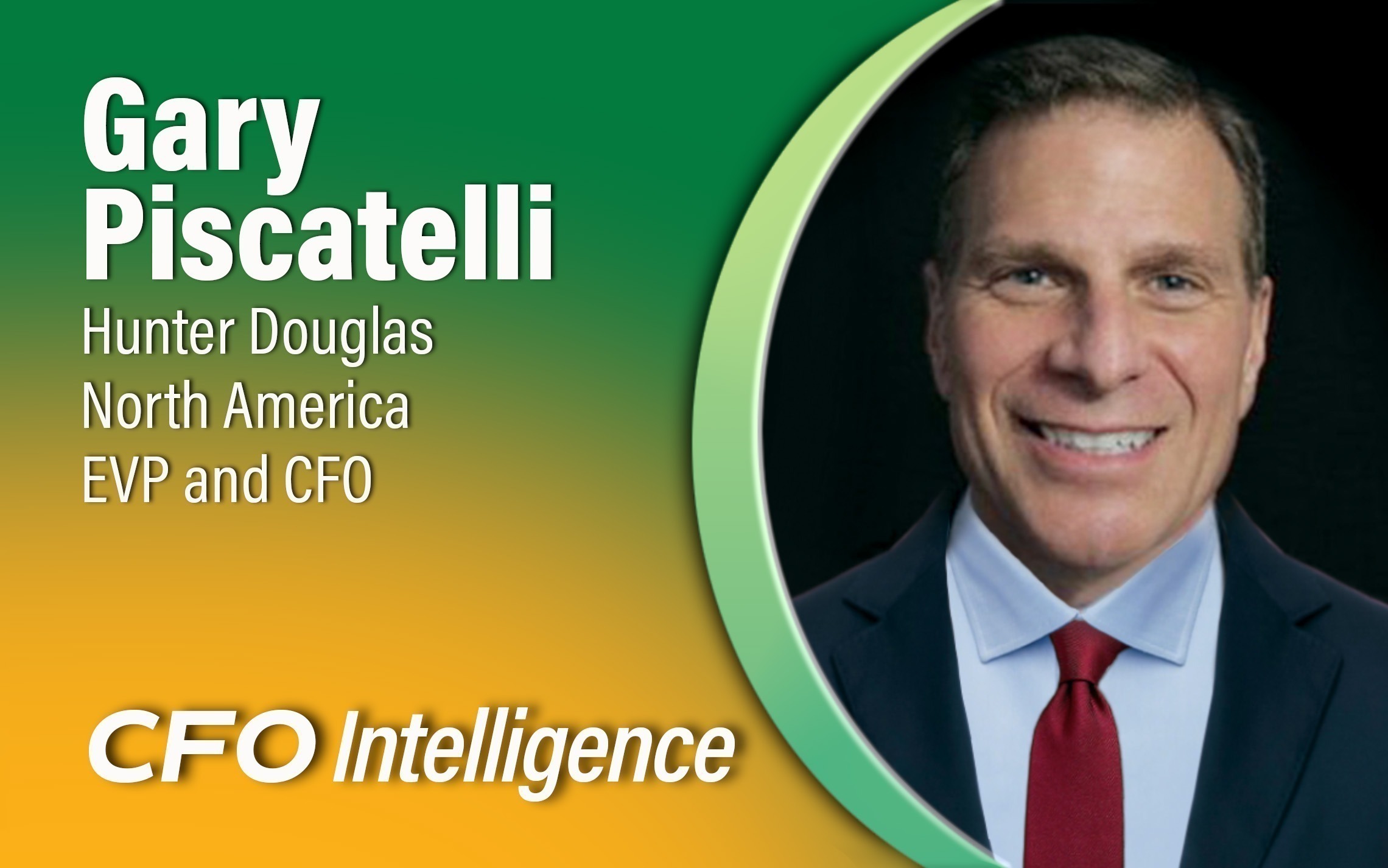CFO Intelligence Magazine – Fall 2021
Gary Piscatelli
Hunter Douglas North America, EVP and CFO
Gary Piscatelli, CFO and Senior Vice President of Hunter Douglas North America, is all about continuous improvement, or as he once put it in an Audible.com podcast interview: “It’s about getting better at delivering on your strategic objectives.”
Based in the Netherlands with North American headquarters in Pearl River, N.Y. Hunter Douglas is the world market leader in custom window coverings and a major manufacturer of architectural products.
It’s made up of 134 companies with 47 manufacturing and 87 assembly and marketing operations in more than 100 countries, and stands out by creating innovative product designs that fuse form with function to meet the evolving needs of the marketplace.
Piscatelli, who’s been with the company since 2014 [he was previously SVP and CFO at Timex Group], identifies opportunities and drives results through collaboration, accountability and cross-functional process improvement.
ALTERNATIVE SOLUTIONS FOR DISRUPTIVE TIMES
When the COVID-19 pandemic upended the global landscape in March 2020, Piscatelli, along with the entire executive team, was confronted with multiple challenges, including supply chain disruptions, economic upheaval, and the pressing need to find a way to maintain production while ensuring the safety of employees.
“Right at the start we had to find answers for two pressing concerns,” he recalls. “Many of our retail customers are small independent businesses, so it was critical for us to maintain safety for our associates; along with continuity of supply for these customers who would have faced significant burdens if we were not able to continue.”
While North America is his scope of responsibility, Piscatelli’s first thought was to look to Asian operations for initial guidance, since that region had previously coped with flu outbreaks and pandemics, including COVID. “Even before the CDC guidelines emerged, we were focused on getting face coverings, gloves and other protective gear for our manufacturing and office personnel,” he says. “We spoke with medical professionals, lined up cleaning companies, reorganized our cafeterias and installed partitions to limit interpersonal contact. Then, when there was a shortage of masks, we redeployed some of our buyers to scout out PPE sources, and repurposed some of our plants so we could make our own masks as we ramped up our supply we also donated PPE to local communities. It was the right thing to do.”


0 Comments